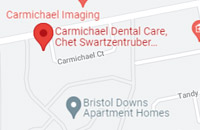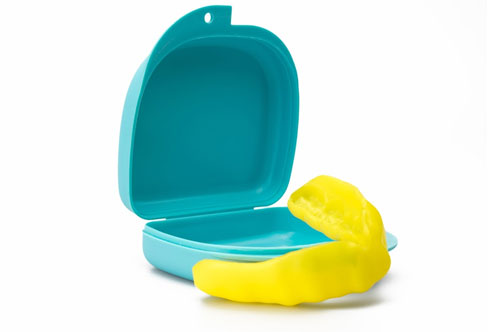If you’re celebrating April Fool’s Day, you may be trying to convince some of your loved ones of things that aren’t true – all in the name of fun. In talking with our patients, we’ve found that many of them believe dental myths, things about their teeth that aren’t true. Unfortunately, believing some of these things can do real dental damage.
If you have any questions about caring for your teeth, just ask! Call us any time at 334-600-1423. In the meantime, we’re explaining the truth behind some of the most common dental myths we hear from our patients.
It’s Important to Brush After Every Meal
It actually makes more sense to brush your teeth before you eat, rather than after. Brushing removes bacteria-filled plaque from your teeth. Doing so before you eat removes the bacteria that can interact with sugars and other substances to cause decay.
Brushing your teeth after meals does get rid of bits of excess food, but that helps more with preventing bad breath and stains on teeth than cavity prevention. We suggest brushing before meals, if possible, and rinsing with water after eating.
Really Scrub Your Teeth to Get Them Clean
Overly vigorous brushing can actually damage tooth enamel and irritate your gums. It’s more important to hold the brush properly, at a 45-degree angle to your gums, and to use the right motion, making gentle circles. Always choose a brush with soft bristles too.
Diet Soda Doesn’t Have Sugar So It Won’t Hurt Teeth
Diet soda doesn’t contain sugar, but it does contain a lot of acid. Acid weakens your tooth enamel and makes it susceptible to decay. Other drinks high in acid, including fruit juices and many sports drinks and energy drinks, have the same effect on teeth. Plain water is always the best drink for teeth. After consuming drinks high in acid, rinse your mouth with water if you can. Don’t brush right away, as it may damage the enamel that has been weakened by the acid.
Cavities in Baby Teeth Aren’t a Big Deal
Many people don’t worry too much about caring for baby teeth, reasoning their children are going to “lose them anyway.” But if a baby tooth becomes infected, it can actually infect the permanent tooth that sits underneath the gums. In addition, decay can spread from baby teeth to any nearby permanent teeth that have already come in. Plus, if a child loses a baby tooth to decay, it can cause other teeth to shift out of position and affect their bite.
Skip Flossing if Your Gums Are Bleeding
If your gums bleed when you floss, it’s likely a sign you haven’t been flossing enough. If you struggle with flossing, ask us about alternatives like interdental brushes. If your gums still bleed after a few weeks of regular flossing, see us right away. Bleeding gums can be a sign of gum disease.
See the Dentist for an Exam Every Six Months
Six months is our rule of thumb for dental exams and cleanings. That gives us a chance to examine you for signs of cavities, gum disease, oral cancer, and other problems. However, some people need to see us more often. For instance, if you’ve recently been treated for gum disease, we’ll probably suggest seeing us every three months until we can be sure the disease won’t return.
These are six dental myths we hear a lot – but they aren’t the only ones out there. If you have questions about any aspect of your dental care, call us today at 334-600-1423.
Visit Carmichael Dental Care
We can see you as soon as tomorrow!





